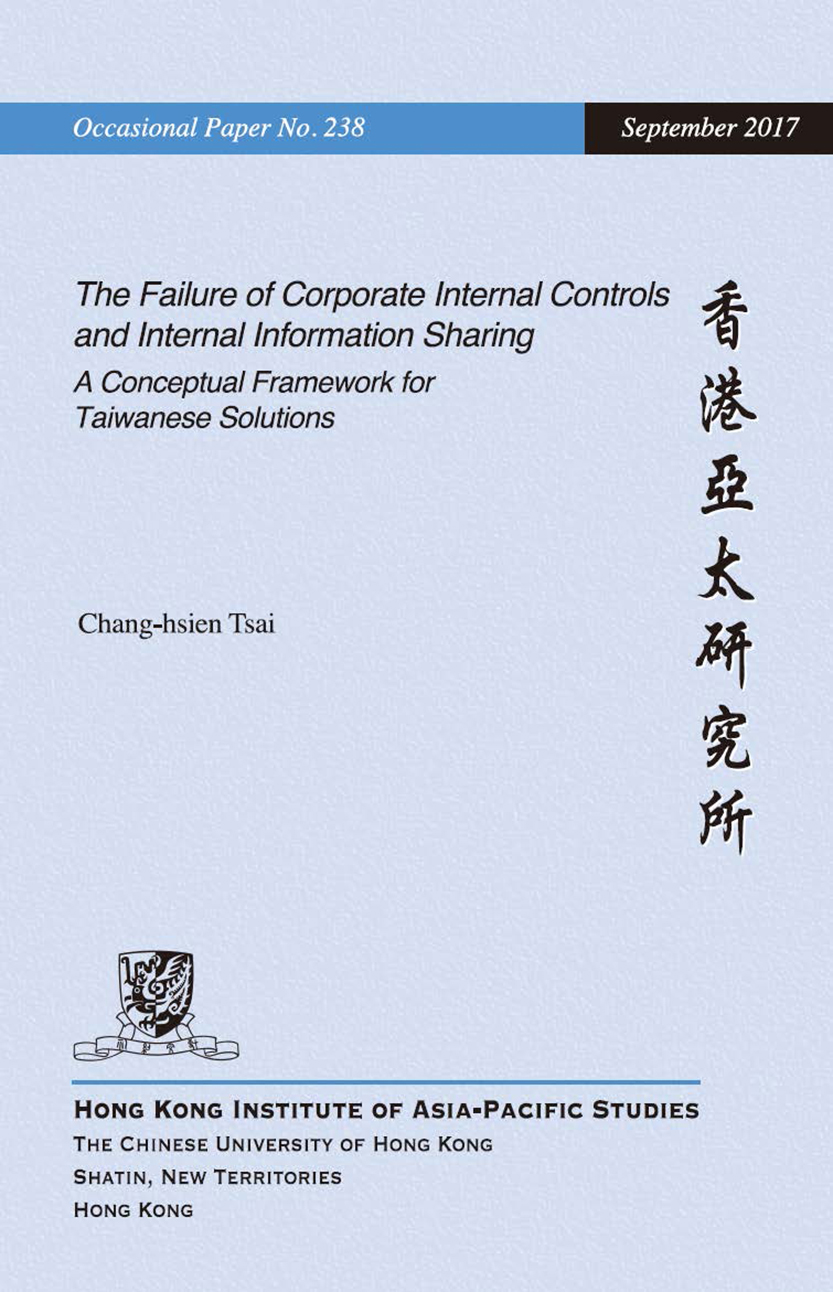HKIAPS Publications
(公司內部控制與內部資訊分享機制之失靈: 解決臺灣公司治理問題的思考框架)
Chang-hsien TSAI
English/21.5 x 14 cm/paperback/ii+44 pages/published in September 2017
ISBN 978-962-441-238-3; list price: US$3.00 (HK$20.00)

Chang-hsien TSAI
Although East Asian jurisdictions such as Taiwan have been adopting similar models of Anglo-American independent directors and audit committees in recent years, we can find that common issues are failure of internal controls, in general, and dysfunctional internal information-sharing mechanisms, in particular. To accommodate Taiwan’s reform trend towards furthering the adoption of independent directors and audit committees, this article offers a roadmap for conceptual solutions which are harmonic with each other as prerequisites to enable monitors of management to have the incentives and means to exercise their oversight. First, the board’s duty to monitor should be reiterated while being transplanted into corporate governance rules. Second, independent information channels should be established to enable internal governance information to flow to corporate monitors, thus facilitating their decision-making in oversight. Finally, external market forces should be channelled to safeguard internal corporate governance.
公司內部控制與內部資訊分享機制之失靈:解決臺灣公司治理問題的思考框架
蔡昌憲
雖然以臺灣為例之東亞法域在近年來持續地引進英美的公司治理模式(例如獨立董事及審計委員會),一般而言,內部控制制度之失靈(尤其是內部資訊分享機制未能發揮功能)仍是常見的問題。本文提供在概念上相互配合的解決之道,作為移植英美公司治理模式的前提,以使公司內監督管理階層之人有從事監督的誘因及工具。首先,公司治理規範中應明定董事會的監督義務。其次,獨立的資訊管道應予建立,以使內部治理資訊流通至公司監督者,進而有利於其等從事監督的決策。最後,應同時導入外部的市場力量,以維護公司內部治理之品質。
